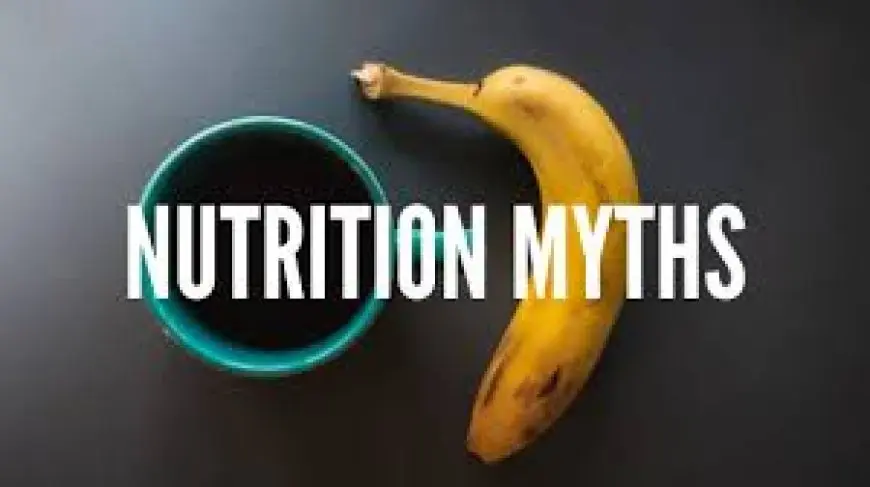In an age of information overload, it’s easy to fall prey to misleading nutrition myths that can impact our health and well-being. From superfoods to detox diets, misinformation spreads like wildfire, making it increasingly difficult to navigate the complexities of nutrition. This article aims to debunk common nutrition myths, providing you with evidence-based insights that will help you make informed dietary choices.
Myth 1: Carbs Are the Enemy
One of the most pervasive myths in nutrition is that carbohydrates (carbs) are bad and should be completely avoided if you want to lose weight. In reality, carbs are a vital source of energy for the body, particularly for the brain and muscles. The key is to distinguish between simple and complex carbohydrates.
- Simple carbohydrates (found in sugary snacks, sodas, and processed foods) can lead to rapid spikes in blood sugar levels, which is where the negative stigma often arises.
- Complex carbohydrates, on the other hand, (like whole grains, legumes, and vegetables) are nutrient-rich and offer sustained energy. A balanced diet incorporates these healthy carbs rather than completely eliminating them.
Myth 2: All Fats Are Bad
Another common misconception is that all fats should be avoided for optimal health. While it’s true that trans fats and excessive saturated fats can be detrimental, healthy fats play a crucial role in our overall well-being.
- Monounsaturated and polyunsaturated fats (found in avocados, nuts, seeds, and oily fish) are essential for brain health, hormone production, and the absorption of fat-soluble vitamins (A, D, E, and K).
Including healthy fats in your diet can help improve heart health and reduce the risk of chronic diseases. Moderation is the key to incorporating fat into your nutrition plan.
Myth 3: Detox Diets Are Necessary for Clearing Toxins
Detox diets claim to cleanse the body and rid it of toxins. However, the human body has its own highly efficient detoxification systems—namely the liver, kidneys, and gastrointestinal system—that work around the clock to eliminate waste and toxins naturally.
Many detox diets are unsustainable and can lead to nutrient deficiencies, energy depletion, and digestive complications. Instead of pursuing fad detoxes, focus on a balanced diet rich in vegetables, fruits, whole grains, and hydration, which supports your body's natural detoxification processes.
Myth 4: Eating Late at Night Causes Weight Gain
The belief that eating at night leads to weight gain is another myth that deserves reconsideration. Weight gain occurs when you consume more calories than you burn, regardless of the timing of your meals.
While it’s true that late-night snacking often involves unhealthy choices, it’s the overall quantity and quality of food intake throughout the day that matters most. If you find yourself hungry in the evening, opt for healthy snacks, such as Greek yogurt or a handful of nuts, rather than high-calorie, low-nutrient foods.
Myth 5: You Need to Drink 8 Glasses of Water a Day
While staying hydrated is crucial for health, the "8 glasses a day" guideline is not a one-size-fits-all solution. Individual hydration needs vary based on several factors, including age, activity level, climate, and overall diet.
A more nuanced approach is to listen to your body and drink when you feel thirsty. Foods like fruits and vegetables also contribute to your daily water intake. A good rule of thumb is to monitor the color of your urine: light yellow indicates adequate hydration, while dark yellow may signal the need for more fluids.
Myth 6: High-Protein Diets Are Best for Everyone
High-protein diets have gained popularity for weight loss and muscle gain, but they may not be suitable for everyone. While protein is an essential macronutrient, excessively high intakes can place stress on the kidneys and lead to other health issues.
Different individuals have varied protein needs based on their age, activity level, and health conditions. It’s vital to find a balance and include a variety of foods in your diet—lean proteins, whole grains, healthy fats, and plenty of fruits and vegetables.
Myth 7: Supplements Can Replace Healthy Eating
Many people believe that taking dietary supplements can compensate for a poor diet. While supplements can help fill nutrient gaps, they should not replace whole foods. Whole foods provide a complex matrix of nutrients, fiber, and other bioactive compounds that supplements cannot replicate.
A well-rounded diet rich in diverse foods offers far greater health benefits and helps lower the risk of chronic diseases compared to relying on isolated nutrients in supplement form.
Navigating the world of nutrition can be confusing, especially with the plethora of myths and misinformation available. By debunking common nutrition myths, you can gain a clearer understanding of what constitutes a healthy diet. Focus on balance, variety, and moderation to support your overall well-being. Always consider consulting with a registered dietitian or healthcare provider for personalized nutrition advice tailored to your individual needs.








